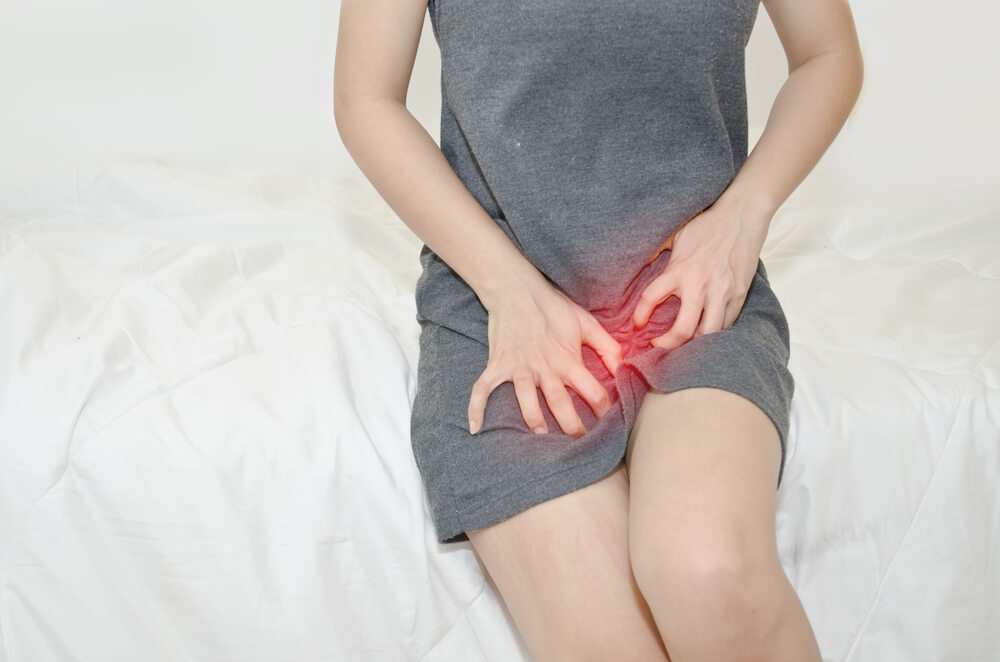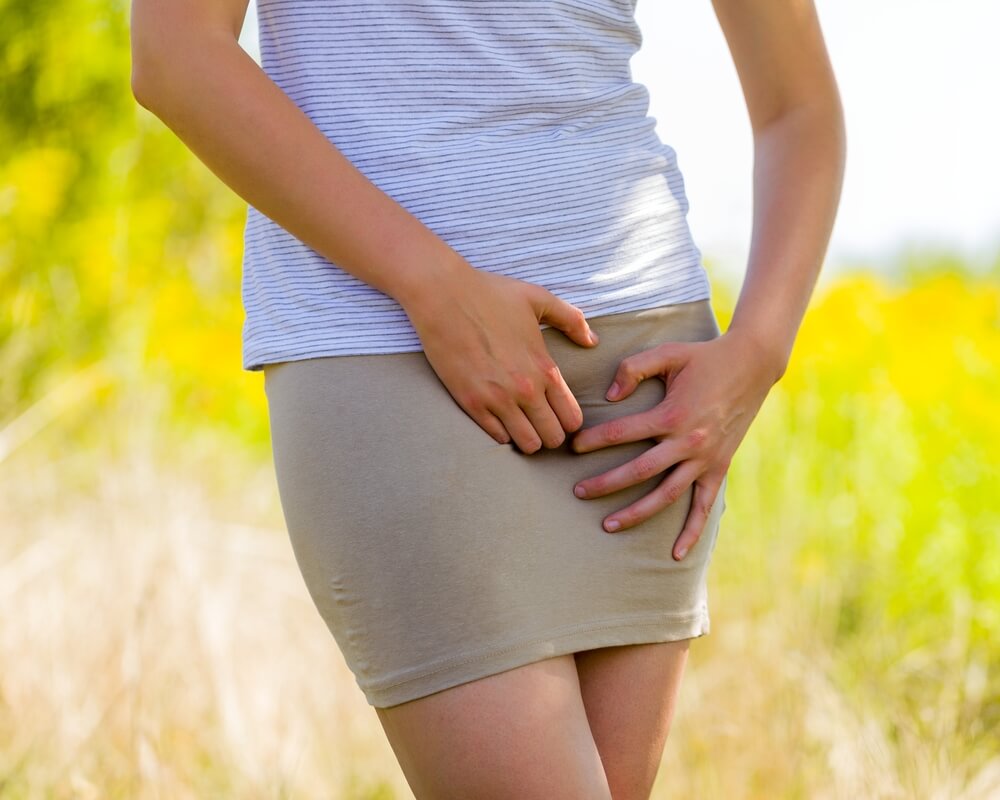Many women experience vaginal itching during a period, but few are aware of the reasons this may happen. Although the common reasons may be harmless such as having allergies to tampons, others can be more serious. Find out why you might be experiencing vaginal itching during a period and what you can do about it. Although feeling itchy during your period can be extremely uncomfortable, there are many excellent at-home remedies and treatments that you can consider. Learn about these treatment methods and feel better in no time.
If you are concerned about having an itchy vagina during a period and you want to receive expert guidance, we recommend reaching out to professionals at Obstetrics and Gynecology in South Miami, Florida. By talking to a healthcare specialist, you will get evaluated and treated properly.
Why does vaginal itching during a period occur, and what are some of the best ways you can alleviate discomfort today? Keep scrolling to find out.
Frequent Causes of Vaginal Itching During Period
A lot of women worldwide experience itching or discomfort during menstrual cycles. Here are some of the most common reasons why you may endure vulva itching during periods.
Allergies or Sensitivities

One of the reasons you may feel itchy during a period is that you are allergic or sensitive to particular products or substances that come into contact with the delicate skin around your vagina. The following hygiene products could possibly be the cause of an “itchy period”:
- Tampons
- Deodorizing sprays and harsh soaps
- Sanitary pads
Some other products may also cause you to have an itchy period. For instance, you may experience an allergic reaction if you:
- Wash your underwear in harsh fabric softeners or laundry detergents.
- Wear underwear created from synthetic fibers.
- Use spermicides.
- Use latex condoms.
- Use lubricants.
In fact, vulva itching during periods can get worse if you repeatedly expose yourself to an irritant. We recommend avoiding the use of chemicals and, instead, opting for natural ingredients and underwear made from lightweight natural materials. If you are unsure what is causing your allergic reaction or sensitivity, talk to a professional.
Hormonal Changes
Many women experience an itchy vagina during a period due to hormonal changes in the body. There is a balance of different yeasts and bacteria in the vagina. If the patient’s hormone levels change (for instance, during menstrual cycles), the relative levels of the vaginal microorganisms can change as well. As a result, you can have an itchy period.
Besides having a menstrual cycle, a woman can feel itchy during a period due to hormone level changes triggered by:
- Pregnancy
- Menopause
Less Common Causes of Vaginal Itching During Period
Nevertheless, some causes of an itchy vagina during a period can be less noticeable. Find out the less common reasons for discomfort and itchiness, and talk to your healthcare professional about your treatment options.
Trichomoniasis
The sexually transmitted infection (STI) called trichomoniasis might be one of the reasons why women experience an itchy vagina during a period. It is caused by the Trichomonas vaginalis parasite. According to experts, about 15 to 20 percent of vaginitis (irritation or inflammation of the vagina) patients have trichomoniasis.
Bacterial Vaginosis
When you have bacterial vaginosis, a common infection that happens when the “good” and “bad” bacteria in your vagina are thrown out of balance, you may get an itchy period. Individuals with bacterial vaginosis report feeling vaginal itching and discomfort, as well as an unpleasant white or grey vaginal discharge.
In fact, bacterial vaginosis is the number one most common infection of the vagina among females between the ages of 15 to 44. The Office on Women’s Health claims that bacterial vaginosis is twice as likely to occur among women of African American descent compared to Caucasian patients.
Vaginal Yeast Infection
Many patients may have a vaginal yeast infection at some point in life. This is a common fungal infection type that is caused by Candida yeast. Usually, this yeast is harmless, and it lives in the vagina.
However, the following factors can cause the Candida yeast to multiply. These include:
- Uncontrollable diabetes
- Pregnancy
- Specific medications
A woman who has a vaginal yeast infection may experience some of the following:
- Stinging or soreness during sexual intercourse or urination.
- Vaginal itching or irritation.
- Unusual white vaginal discharge that resembles cottage cheese.
Psoriasis
Psoriasis may develop on any body part, including inside the vagina and on the vulva. The two psoriasis types that affect the patient’s genitals include inverted psoriasis and plaque psoriasis.
Dermatitis
Based on the findings of a 2014 review, about 50 percent of all chronic vulvovaginal itching cases happen because of irritant or allergic contact dermatitis. These dermatitis types usually occur due to poor hygiene or repeated exposure to irritants like harsh chemicals.
Lichen Planus
Lichen planus is a condition that affects different body parts, including the vagina, the mouth, and the delicate area around the vulva. People with this autoimmune condition may experience some of the following symptoms:
- Scarring
- Painful sexual intercourse
- Bloody or yellow vaginal discharge
- An itchy rash
Lichen Sclerosus
Individuals with lichen sclerosus (a skin condition that causes inflammation) can experience white patches on the anus or on the genitals that are itchy. Unfortunately, the exact reasons why patients get lichen sclerosus remain unknown.
Cancer
In rare cases, some patients feel itchy during a period due to cancer. The three most common cancer types linked with vaginal itching include:
- Cervical cancer
- Vulvar cancer
- Vaginal cancer
Atrophic Vulvovaginitis
When a patient’s vaginal tissues become easily inflamed, tender, and dry, doctors may suspect atrophic vulvovaginitis. Some of the common symptoms of this low-estrogen-caused condition include:
- Spotting
- Vaginal burning
- Vaginal or vulvar itching
- Painful sexual intercourse
Certain Medications
Medications may make you feel itchy during your period. Some of the following medications may be provoking itchiness of the vagina:
- Steroids
- Antibiotics
- Immune-suppressing medications
How to Treat Vaginal Itching During Period?

Feeling itchy during a period can be extremely uncomfortable and upsetting. Luckily, there are many things you can do to treat symptoms.
Consider At-Home Remedies
Here are some quick and cheap remedies that you can consider:
- Take high-quality probiotic supplements to restore “good” bacteria levels in your vagina.
- Refrain from douching, as this can lead to bacteria imbalance in the vagina.
- Choose breathable cotton underwear.
- Avoid the use of soaps with irritants like perfume.
- Wash your clothes with fragrance-free detergent.
- Use warm water instead of hot when taking baths to avoid vaginal skin irritation.
- Consider soaking in lukewarm water mixed with baking soda (four to five tablespoons).
Seek Out Professional Help
If your vulva is itching during periods, you may need to talk to a medical professional. Although the at-home remedies are effective in treating vaginal itchiness, you may require the assistance of a doctor. Here are some potential treatments for vulva itching during periods:
- Topical steroids (prescribed for patients with atrophic vulvovaginitis)
- Antifungal pessaries and creams (for yeast infection patients)
- Antibiotics (for patients with bacterial vaginosis or different bacterial infections)
- Antihistamines (for psoriasis and contact dermatitis)
Usually, vaginal itching clears up without the need for medical help. However, if you do not notice an improvement in symptoms, you will want to see a professional. If you are pregnant and experiencing itchiness in the vaginal area, consult with your OB-GYN immediately.
Do you have more questions and concerns? Are you seeking the best treatments? Give us a call today and book your first appointment.


